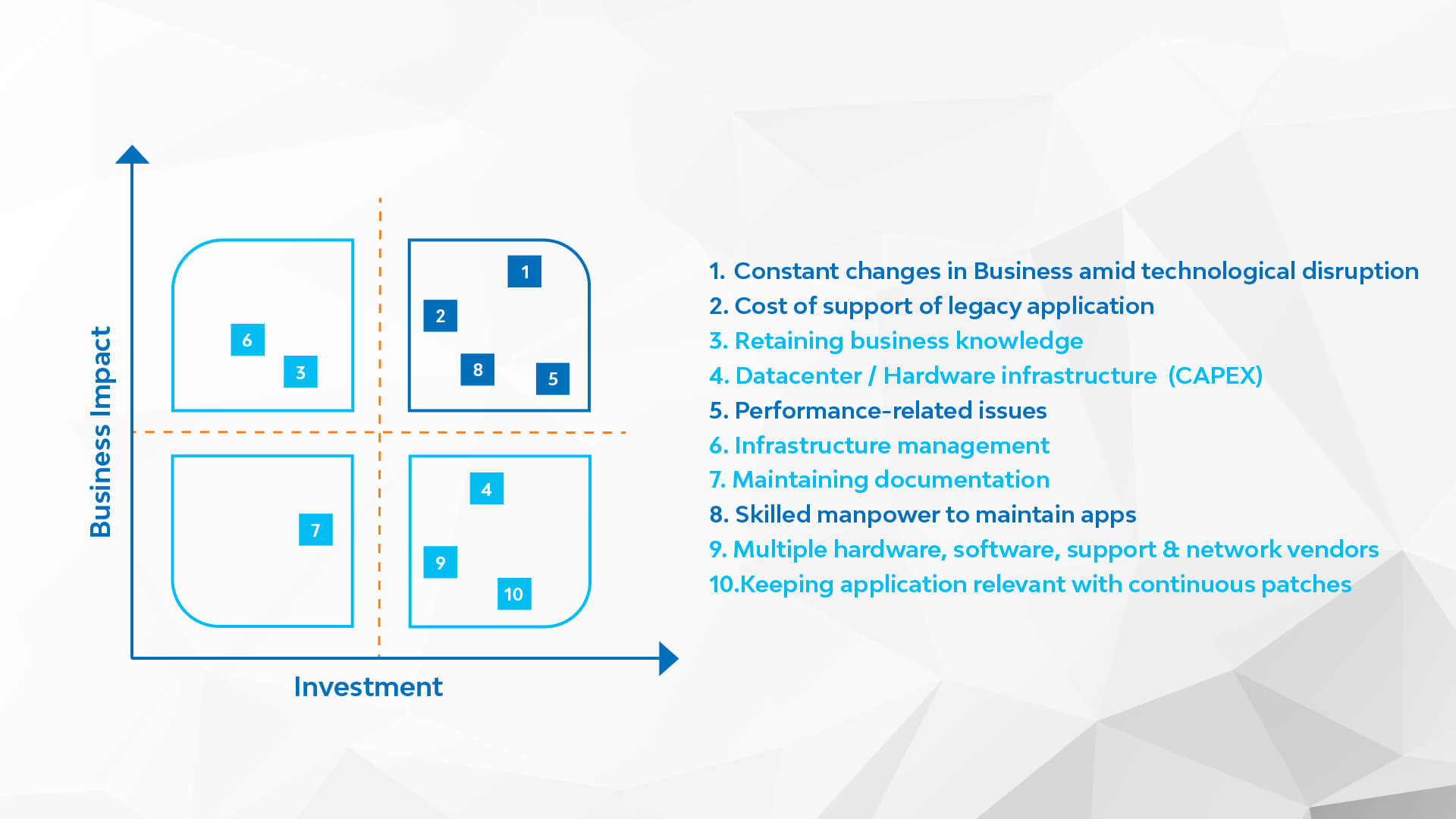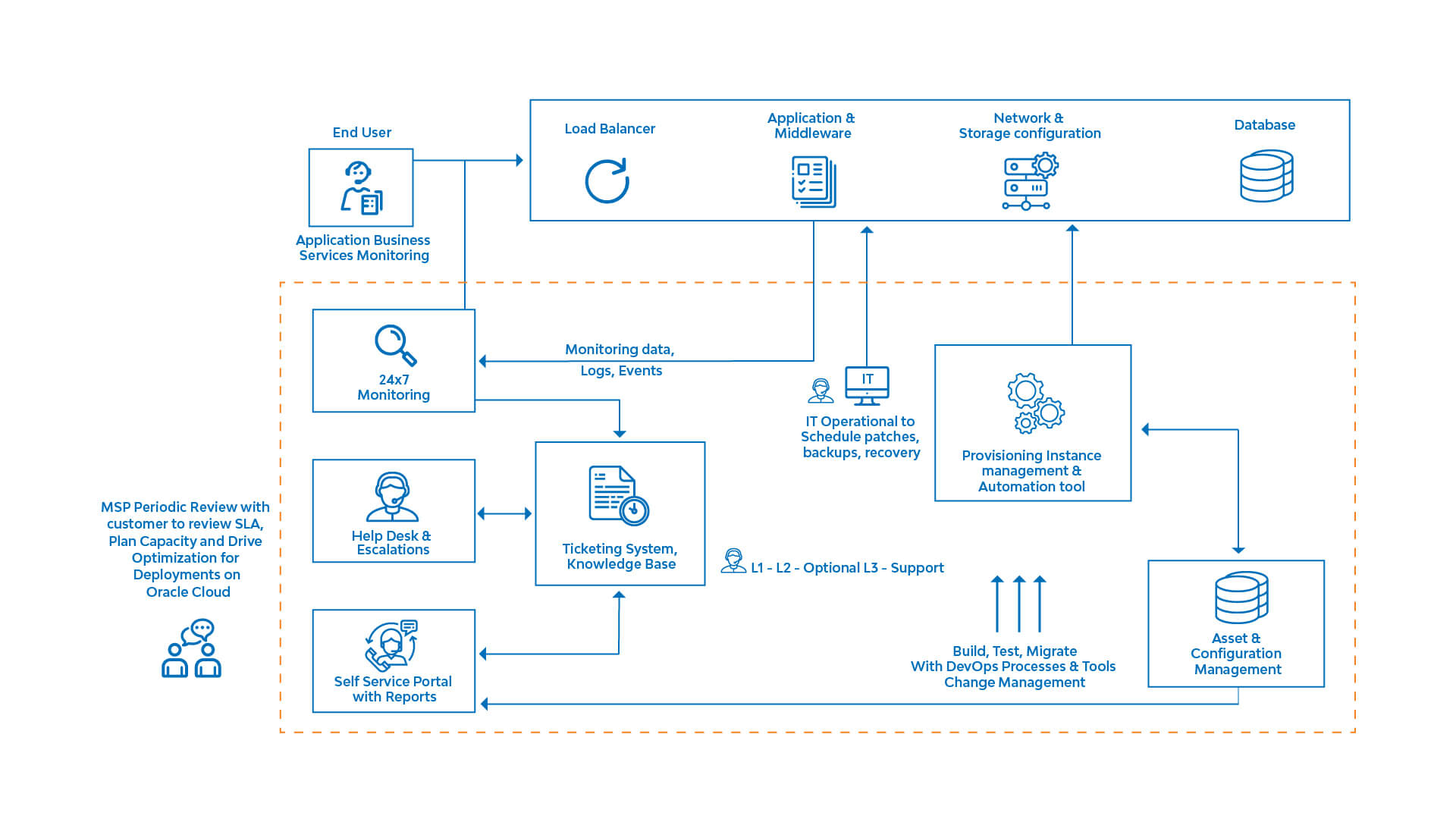Every Cloud Has a Silver Lining
‘Every cloud has a silver lining‘– who knew that this often-used phrase would be used in context of Information Technology! Today, it’s difficult to have a technology-related conversation without some reference to the cloud.
Many CIOs, whose organizations still host data centers and applications on-premise, are contemplating migrating to the cloud. However, investments made in integrated, on-premise applications such as SAP, Oracle E-Business Suite, Oracle JD Edwards, Oracle PeopleSoft, and Infor make the decision regarding transition difficult. Nevertheless, they do recognize the risk of getting locked to such ‘legacy’ solutions, given the dynamic and ever-changing business environment. With digitalization increasingly widespread, this transformation becoming increasingly inevitable.
Our interactions with CIOs highlight this dichotomy of thoughts, wherein organizations continue with archaic business processes and applications till they have no other option but to ‘change’ to modern digital systems for business transformation. While CIOs can run the same old application, they need to address the associated challenges.
Why move to the cloud?
To better understand these challenges, LTI conducted a brief survey of our customers who were using archaic business processes and applications till they had no other option but to adapt and adopt. We prepared a structured questionnaire for customers running Oracle E-Business Suite, Oracle JD Edwards, Oracle PeopleSoft and Oracle Siebel applications on-premise. It covered challenges involved in maintaining the legacy applications.
It threw up some interesting findings…we received responses from 68% of those surveyed, and these were the top 10 concerns they cited:

As far as drivers of cloud adoption were concerned, respondents cited the following five most compelling reasons:
1. Enabling innovation through extensions like mobility, chatbot and IoT
2. Scalability and flexibility to address periodic and temporary demands, e.g. Dev / PY environments for rollouts
3. Gaining competitive edge through improved customer support, services and experience
4. Replacing on-premise legacy applications and moving complete or partial work load to cloud
5. Eliminate hassles of managing multi vendors while keeping an option of leveraging multiple cloud platforms
After analyzing these findings, we feel that Managed Service Provider (MSP) offerings for Oracle solutions can really help enterprises manage and migrate their legacy applications to the cloud seamlessly.
Why MSP?
MSP offerings bring skills, tools and processes to build, deploy, run and manage Oracle and non-Oracle workloads on the Oracle Cloud platform through a single contract. Here are the five key features of such solutions:
- System Integrator own Oracle Cloud for Customer:
- Single owner brings in comfort of contracting and engagement; milestone-based contract will have bundled solution with ‘cloud-plus’ services
- Enhanced Cloud Experience: MSP ensures high availability along with incident management and maintenance services like provisioning, configuration, patching and upgrade for cloud
- Outcome-based Contract: MSP delivers SLAs backed by outcome-driven contracts, 24X7 helpdesk, and L1 and L2 support for applications running on Oracle Cloud platform
- Optimized spend on the cloud via performance testing and tuning, CPU sizing and workload identification
- Extended Capabilities: Extend enterprise IT, monitor the customer’s cloud environments through automation, and introduce management tools integrated with Oracle Cloud APIs and DevOps

Based on the survey conducted and responses received, it is abundantly clear that its not about “If” we should migrate to Cloud, but “When”. The benefits derived by adapting cloud (SaaS/PaaS/IaaS) is significant not just in terms of cost savings but also in terms of enhanced business outcomes. The MSP model enables organizations to have their services partner act like a single window for adapting cloud as it eliminates dealing with cloud platform providers. This also opens up a window for “Horses For Courses” approach enabling selecting appropriate cloud platform and not get locked with one. Another important element is Service Quality which doesn’t get impacted as many of the services including infrastructure management as well as application support can rest with the same services partner. Undoubtedly an incredible value proposition.
Latest Blogs
A closer look at Kimi K2 Thinking, an open agentic model that pushes autonomy, security, and…
We live in an era where data drives every strategic shift, fuels every decision, and informs…
The Evolution of Third-Party Risk: When Trust Meets Technology Not long ago, third-party risk…
Today, media and entertainment are changing quickly. The combination of artificial intelligence,…




